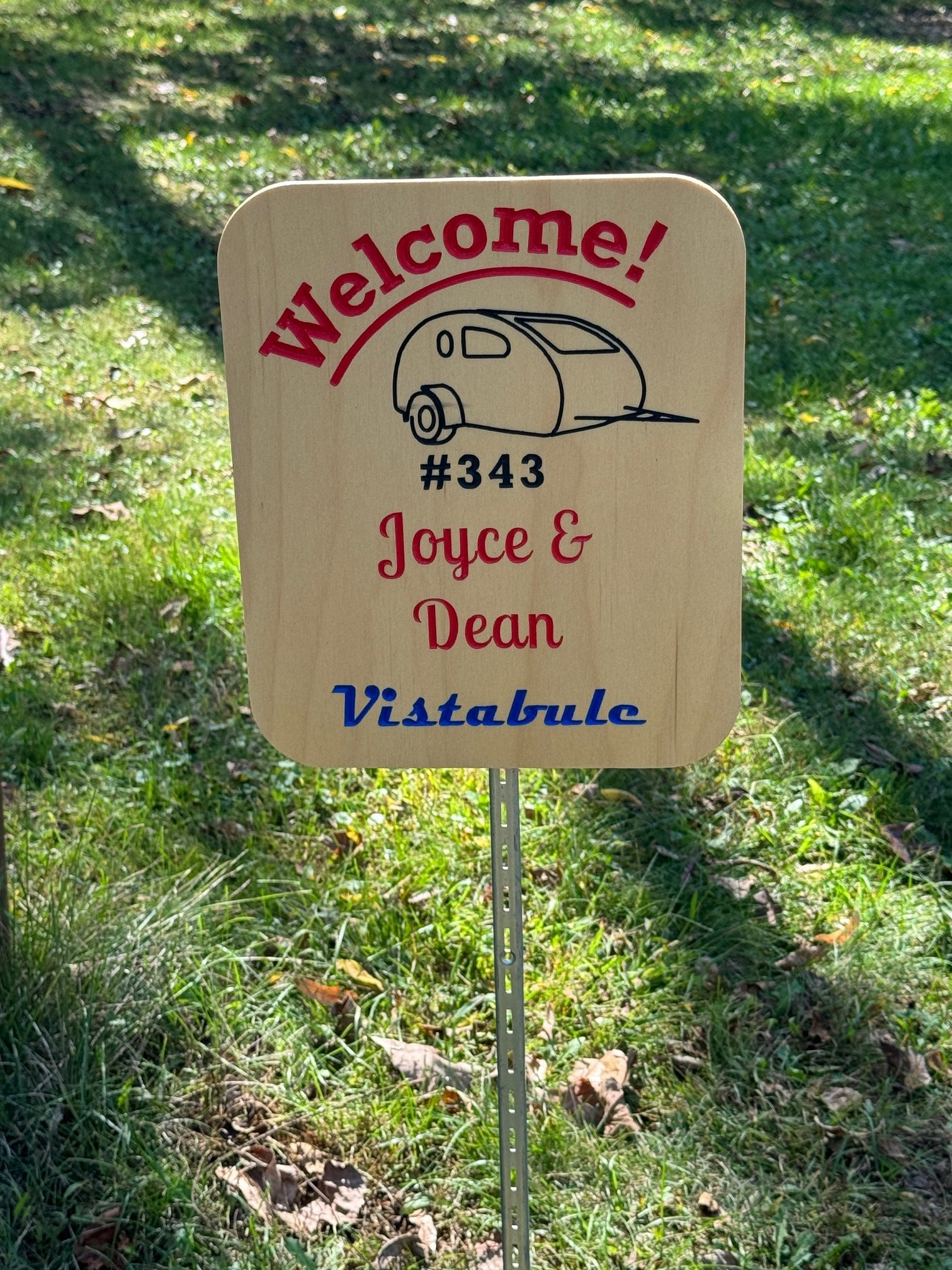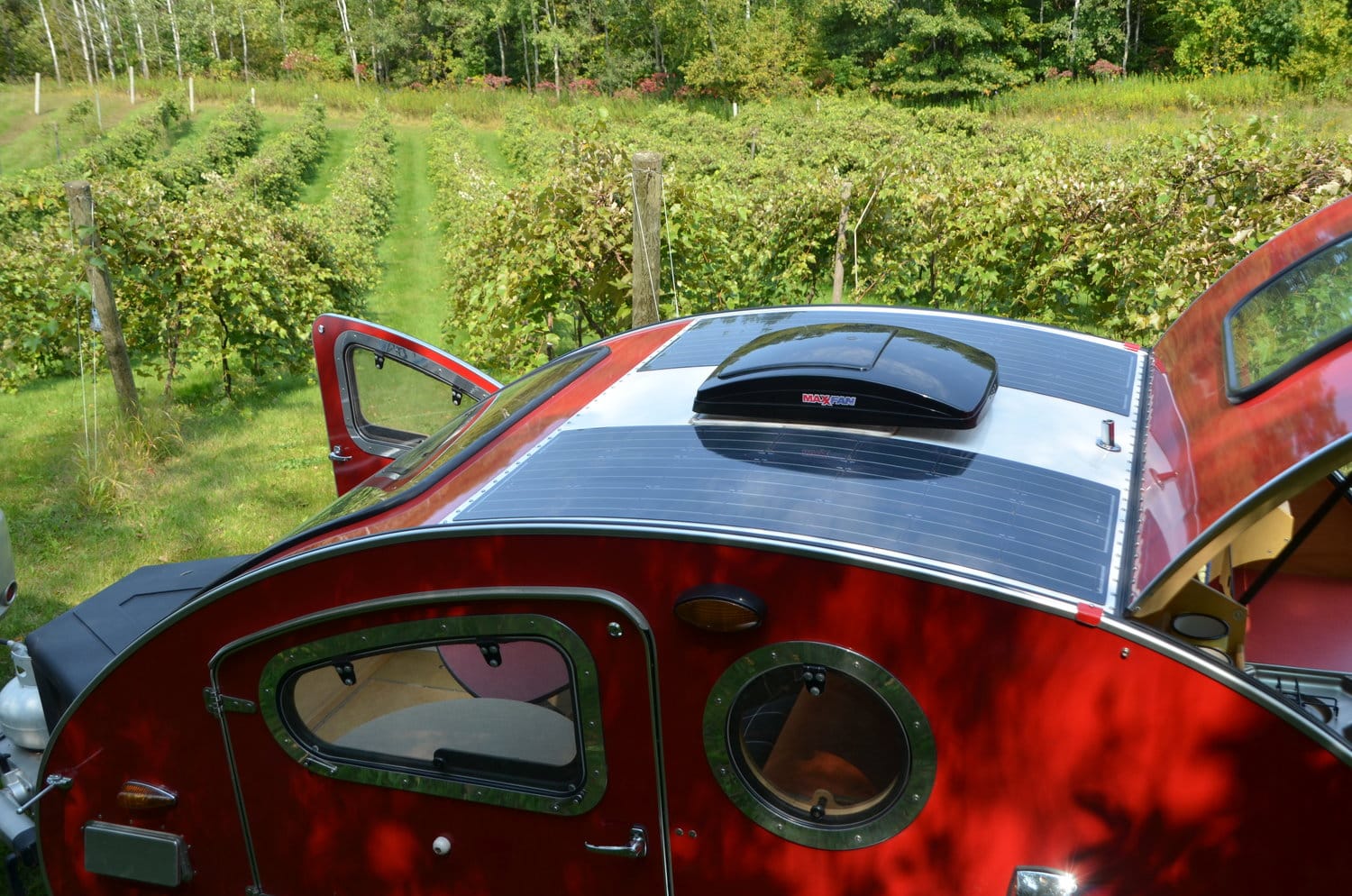Camping is a wonderful way to get away from the stresses of everyday life and reconnect with nature. Whether you are in a tent or a teardrop camper, boondocking, or at a national park, safety has to be the top priority! We know how busy camping preparations can be. That’s why we have created this guide of safety tips! We are going to walk you through:
- Checking Your Camping Gear
- Researching Your Campsite
- Bringing Enough Supplies
- Sharing Your Location
- Preparing for Emergencies
- Safe Campsite Setup
- Being Aware of Yourself
- Being Aware of Your Surroundings
- Maintaining a Clean Campsite
Let’s dive in!
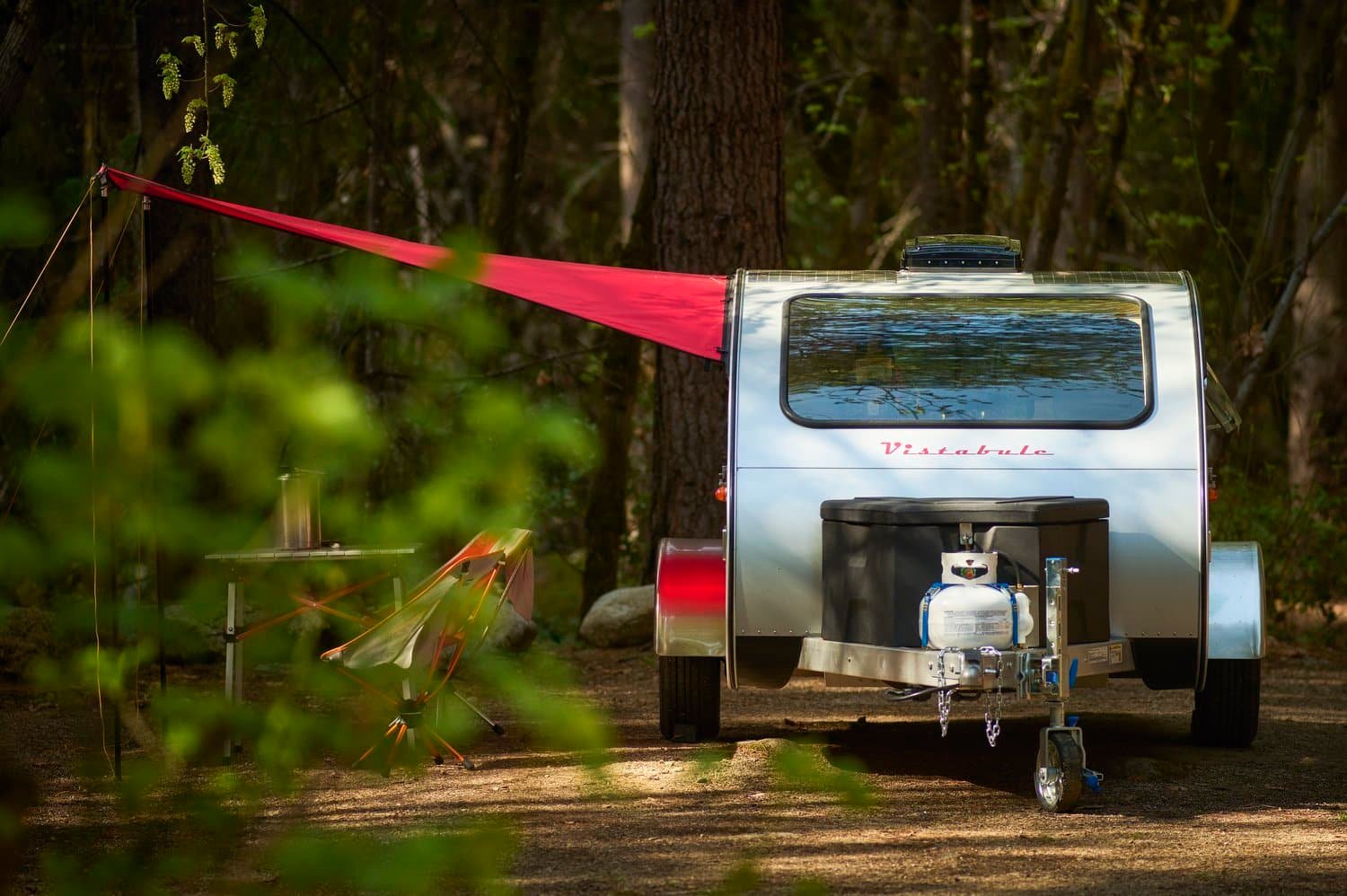
Vistabule in the woods
Checking Your Camping Gear
Before embarking on any camping trip, you will want to be sure to check your gear for any wear and tear. If you are using a tent, pop it out and check for any rips or holes. You’ll also want to be sure to check that all the pieces are in the bag. Nobody wants to find out there is a missing piece once they’ve reached their campsite.
If you are using a teardrop camper, be sure you’ve completed all essential maintenance. Ideally, you’ve been using our maintenance checklist and keeping up with your camper maintenance on a regular basis.
Researching the Campsite
Camping in new places is exciting! There is so much to discover and experience, you’re probably ready to jump right in. Before you do, take some time to research the campground or area you will be visiting.
Read reviews online to see if there are any safety issues people have mentioned (i.e. quick flooding, aggressive wildlife, fields of poison ivy, cell phone reception, etc).
Check the campground’s website to learn about the resources and facilities available to you. Will you have access to running water? What are the campsite regulations?
Bringing Enough Supplies
When packing supplies, you definitely don’t want to go overboard. There’s no sense in packing a million things to bring half a million home. However, when packing for a camping trip, you want to be sure that you will have extras of the necessities in case of an emergency or delay in your departure.
Packing a day or two’s worth of extra food and water will help ensure you don’t run out of anything while you are out. It also grants you the opportunity to use more than you originally planned if needed.
*Pro tip: You want to plan to pack at least 2 gallons of water per person per day. Not necessarily for drinking, though staying hydrated is vital, moreso for dish/hand washing, brushing teeth, a quick wash of the face/body etc.
Sharing Your Location
Before heading off on your adventure, share your itinerary with someone!
You will want to let someone know:
- Where you are camping
- The dates you will be gone
- Any planned outings
We know you will be as safe as possible. In the event something were to happen, it’s best to let someone know where your last known location will be. Otherwise you may end up in a 127 Hours situation.
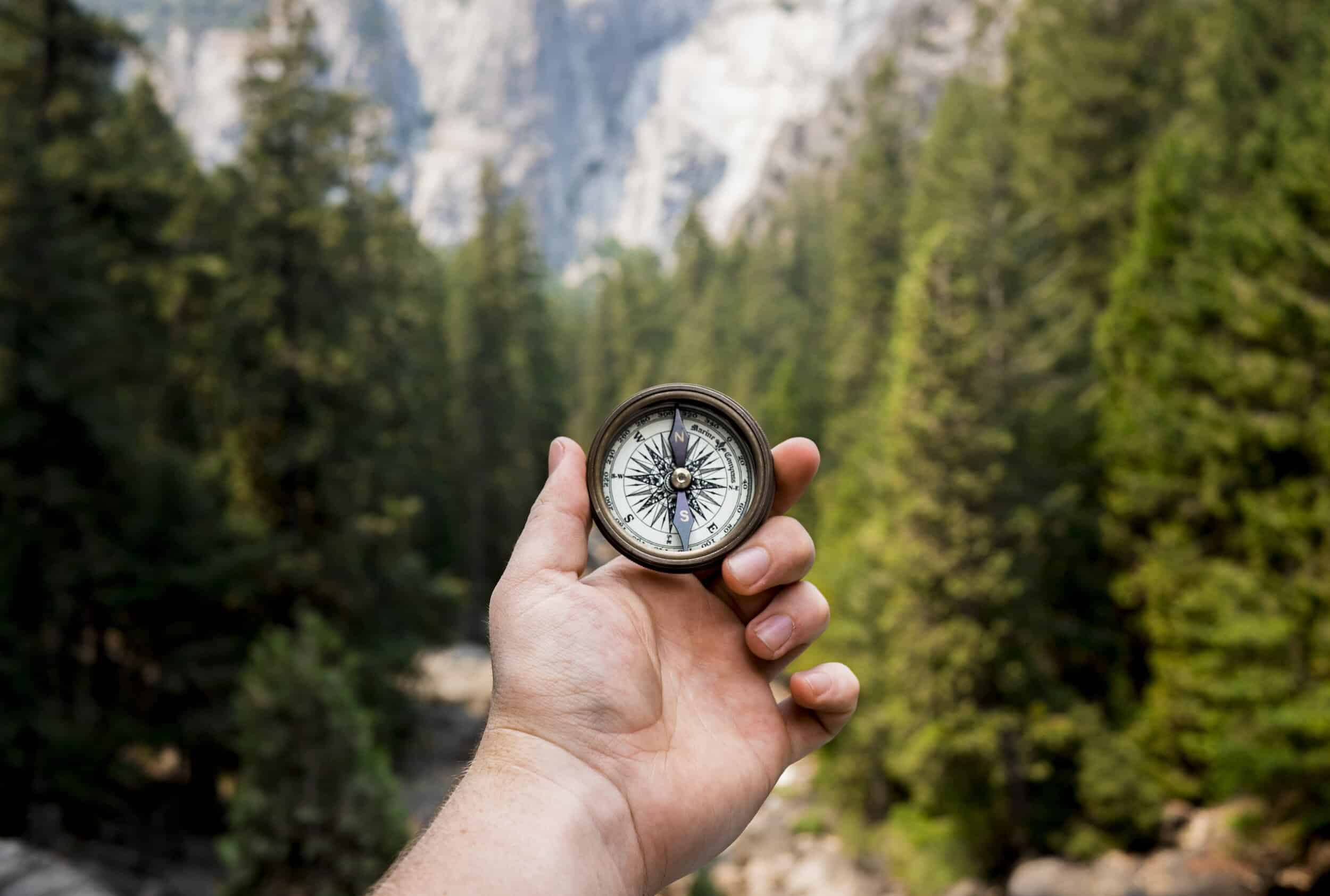
Let others know where/when you’re going!
Preparing for Emergencies
Camping can feel routine if you do it enough. While we want it to be a regular part of your life, you also want to be prepared for the unexpected.
Keeping a fully stocked first aid kit is crucial for any camping trip. You will want to be sure to have bandages, disinfectant, antibacterial wipes, and anything you might need in the event of a physical emergency.
Pack extra flashlights/batteries and blankets. In the event of unexpected weather or an emergency, you will be thankful to have added warmth and the ability to see in the dark.
TL;DR: Don’t get too comfortable.
Safe Campsite Setup
When you get to your campsite, take note of the physical space.
- Are there fallen or loose branches that pose a risk? “Widowmaker” trees that look like they might topple over in a gentle breeze?
- Are there flooding risks?
- Have any hazardous items been left at the site, such as broken glass?
You will also want to step back and see where the safest place to set up camp is. Ideally, you want to set up your teardrop camper or tent on flat land away. This will keep your site from flooding in the event of a storm and provide the safest terrain for your camper or tent.
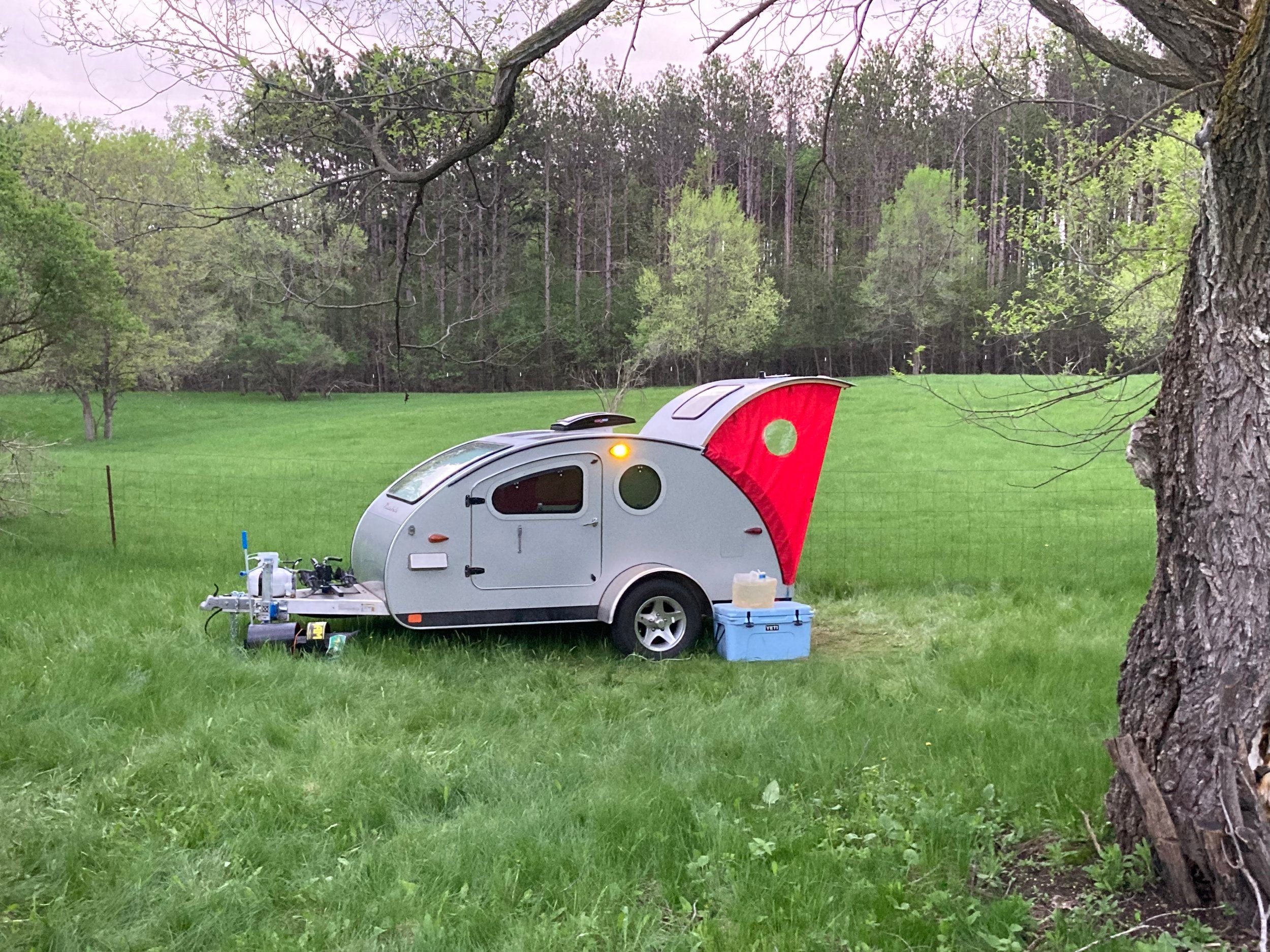
Vistabule in a field
Being Aware of Yourself
We all like to say that we know ourselves better than anyone else. While that is true, it is important to keep in mind that camping conditions are not your every day conditions. You will need to take extra care of yourself while out in the wilderness.
A few things to keep in mind:
- Dont skip meals. You need to keep your energy up and your brain focused and ready to go for the day.
- Hydrate hydrate hydrate. You are going to exert yourself more than normal just by being outside. An easy tip for figuring out how much water you need is to aim to drink half your body weight, in ounces, each day. Ex: If you weigh 150 lbs, you would drink 75 ounces of water in a day.
- Protect your skin with bug spray and sunscreen. We know tanning is all the rave, but keep your skin protected!
- Don’t push yourself too hard. Your camping trip doesn’t need to be the time to test your physical limits. Listen to your body’s signals and pay attention to your physical needs.
Being Aware of Your Surroundings
Being aware of your surroundings is wildly important when you are camping.
First, keep an eye out for any signs of dangerous wildlife. Be on the lookout for scat and tracks telling you animals have been in the area. If you notice tracks and/or scat at your campsite, it may be worth checking in with the campground and seeing if you can move sites.
Another thing to keep an eye on is the weather. Monitor the weather prior to leaving and as you can while you are at your destination. If you do not have cell reception at your campsite, consider buying a weather radio in case of sudden, emergent conditions.
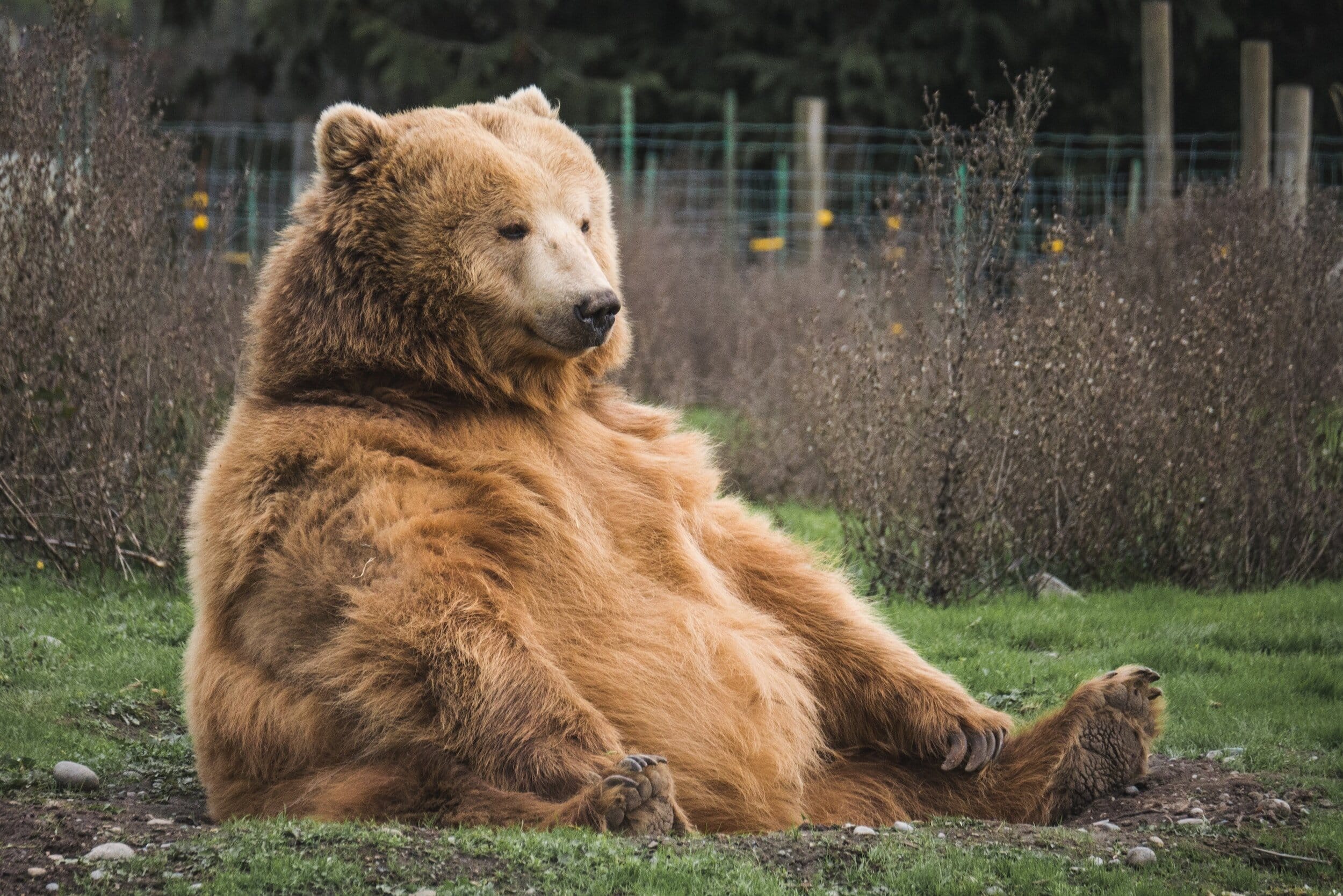
Big Boy
Maintaining a Clean Campsite
A dirty campsite is one of the fastest ways to attract wildlife. Leaving food and trash around, storing it in easy to reach places, and bringing food into your tent are absolute no-gos in camping.
We also want to maintain the golden rule of leaving your campsite in a better state than you found it. Be sure to do a thorough cleaning of your campsite, picking up any and all trash left behind.
Enhance Your Camping Experience with a Vistabule Teardrop Camper
Camping is an amazing opportunity to get outside and step away from “normal” life. Keeping up with safe camping practices allows you to enjoy your trip without harm.
While there is nothing wrong with camping in a tent, a teardrop camper adds a level of safety and comfort to any camping experience. If you’ve been toying with the idea of investing in a teardrop camper, check out our interactive build form. This tool lets you see the breakdown in cost of the teardrop of your dreams. Don’t worry, if you’re feeling overwhelmed or confused by the options, we are here to help!
Related Posts

Travel and Error: Navigating a Pandemic – Part 1
Living and working off the grid in the Mojave Desert has its inherent challenges but the COVID-19 pandemic has become our main hurdle. We happened to be volunteering in Death Valley National Park when the state of California ordered its residents to “shelter-in-place”. But, what does shelter-in-place mean when you don’t have a place?
